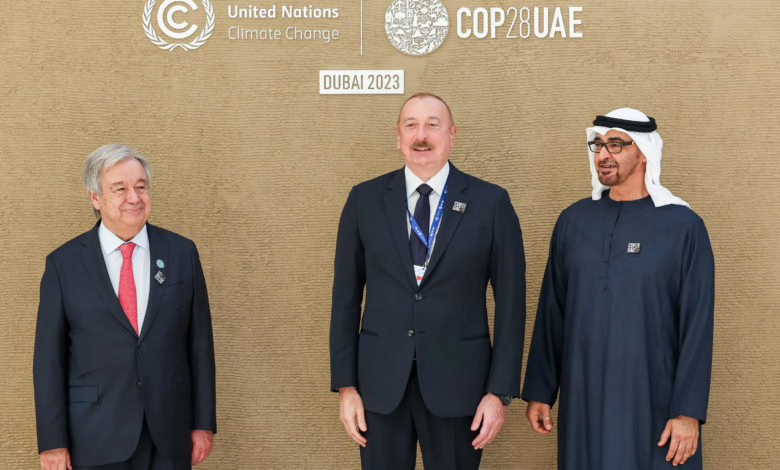Fossil interests will also guide the COP29 in Azerbaijan

Also the COP29 in Azerbaijan to be held at the end of 2024 will have a president “fossil”. Baku appointed Mukhtar Babayev, Minister of Ecology and Natural Resources since 2018, for the role. “Green” credentials that turn to black when you look at the rest of his curriculum: for 26 years he worked at Socar, the national hydrocarbon company of the Caucasian country, holding several prominent roles. This was announced on 4 January by the presidency of COP28 with a post on X.
One appointment, that of Babayev, which also proposes for the COP29 in Azerbaijan the spectre of a climate summit guided by fossil interests, as it was for the COP28 in Dubai in 2023. The UAE President, Sultan al-Jaber, served simultaneously as the UAE’s special envoy for the climate and as head of ADNOC, the state oil and gas company. And although the outcome of the Dubai conference has confirmed, for the first time in black and white, the need for a “transition from fossils”, the agreement remains vague and incorporates many weaknesses – for example, it blinds the role of fossil gas.
Who is Mukhtar Babayev, the president of COP29 in Azerbaijan?
On Babayev’s profile, the details are few. At Socar he held different roles from 1994 onwards, going from overseeing the company’s international relations to becoming responsible for the environmental policies of the oil and gas giant. It is spent on implementing actions and policies on land contaminated by fossil pollution and, to its credit, has several concrete initiatives.
But they are accompanied by the conviction that the stability of oil prices – and the continuation of the business model based on fossil fuels – is the precondition for succeeding in carrying out these actions. As a minister, he is remembered more for his support of the war against Armenia than for innovative energy and environmental policies. It is Babayev’s idea to sue Yerevan for the environmental damage caused during the occupation of Nagorno-Karabakh, regained in full by Baku last September after decades of war of friction.
Bishop of the fossil gas
The other dossier that has engaged Babayev in recent years, as minister, is the expansion of the country’s fossil gas export. A sector that guaranteed more than 90% of revenue in the Azerbaijani state coffers in 2023. And on which, also thanks to the European (and Italian) shores, Baku knows to have an easy play. Especially with the progressive stop of Russian gas supplies to Europe.
Baku plans to expand by about 1/3, within the next 10 years, the volumes of gas extracted today. 37 to 49 billion cubic meters (bcm). Pumping more from the maxi offshore field of Shah Deniz, from which the autocratic country led by the Aliyev family since the dissolution of the Soviet Union expects to derive 411 bcm of gas in a decade. Enough to emit 781 million tons of CO2 into the atmosphere, Rystad Energy calculates. About twice the annual emissions of Italy. All this in a period, the next decade, considered crucial for climate action, during which the global production of fossils should begin to drop significantly to reach the Paris goals.





